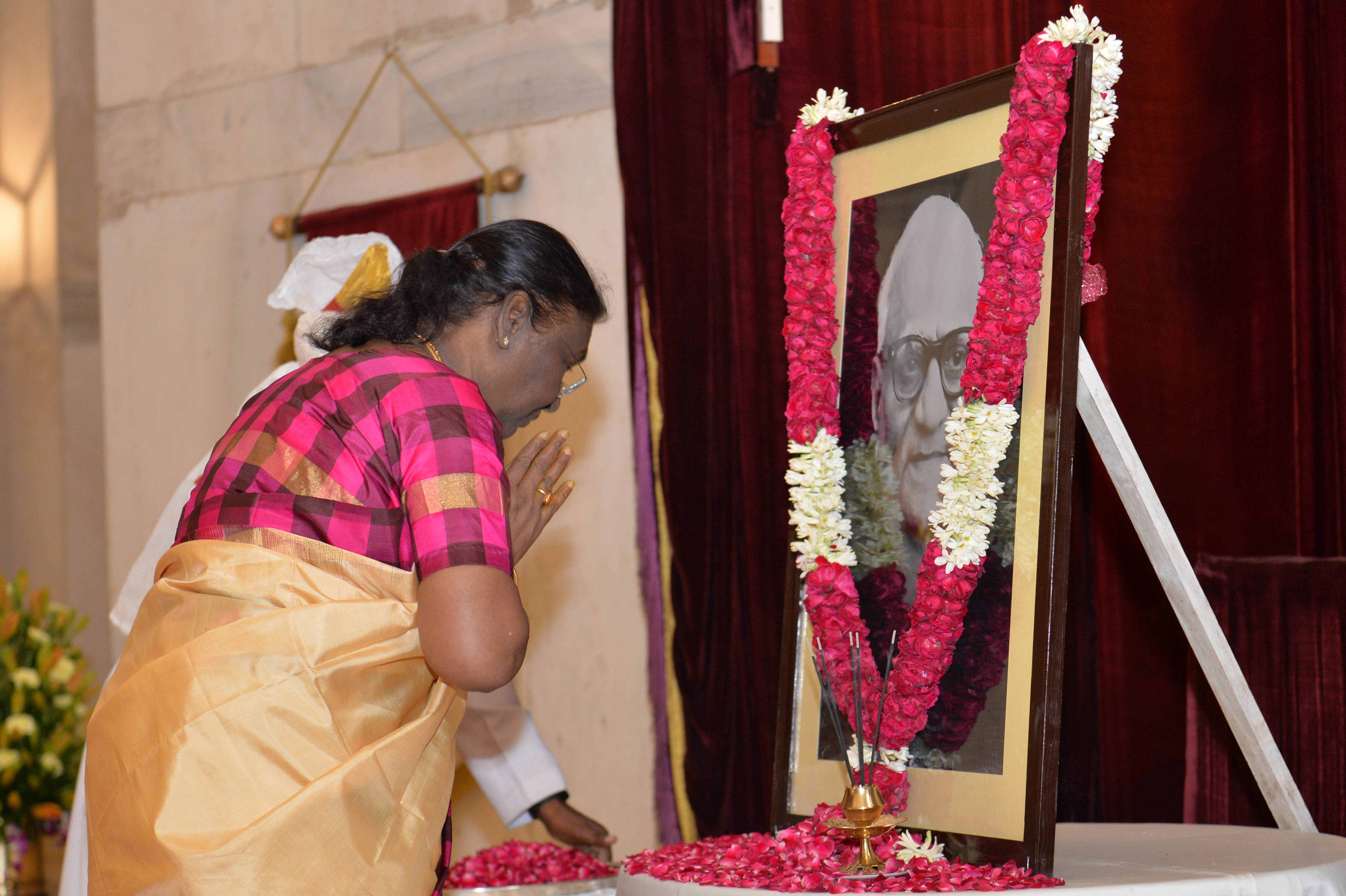President Droupadi Murmu pays homage to the 4th President of India VV Giri on his Birth Anniversary
The President of India, Droupadi Murmu paid homage
to VV Giri, 4th President of India on his birth anniversary at Rashtrapati
Bhavan today (August 10, 2022).
The President and officials of Rashtrapati Bhavan
paid floral tributes in front of a portrait of VV Giri.
The fourth President of India Varahagiri Venkata Giri was born August
10, 1894 in Telugu speaking family in Berhampur district of Odisha in Madras Presidency.
Giri’s family was associated with the Indian National Congress and freedom
struggle. These might have motivated him to be an activist and politician.
Giri’s father VV Jogayya Pantulu was a prominent lawyer and political
activist. His mother Subhadramma led the Civil Disobedience Movement in in
Behrampurs and was very active in the national movement there.
Giri studied at Khallikote College (Madras University). He went to
Dublin to study law. There he became engaged in the Sinn Féin (Irish political
party) movement. In 1916 he was expelled from Ireland. After returning to India,
he got enrolled in Madras High Court. He also had a flourishing legal career.
He soon joined the Labour movement and became the General Secretary and
then President of the All India Railwaymen’s Federation. He was also twice
president of the All India Trade Union Congress, labour wing of the Indian
National Congress (Congress Party). He joined the freedom struggle when Mahatma
Gandhi called for Non cooperation movement. He was also participated in Annie
Besant's Home Rule Movement. In 1922, he was arrested for protesting against
sale of liquor.
Giri became Minister of Labour and Industries in 1937 when the Congress
Party formed government in Madras state (now Tamil Nadu). With the resignation
of the Congress governments and launch of the Quit India Movement in 1942, he
was arrested again.
After India’s Independence, he was appointed High Commissioner to Ceylon
(now Sri Lanka). In 1952, Giri was elected to the First Lok Sabha as Member of
Parliament. VV Giri also served as the Union Minister for Labour, but resigned
in 1954. After this, Giri was appointed as Governor of three states -- Kerala,
Karnataka (then Mysore) and Uttar Pradesh. In 1967, he was also elected Vice
President of India.
Following the death of third President of India, Dr Zakir Husain in
1969, Giri became Acting President. He also declared his intention to contest
for the presidency. VV Giri was elected as the 4th president of India in 1969, the
only independent candidate to do so. He served his full term till 1974. He also
holds the unique record of being the only person to serve twice as Acting President
of India.
Soon after his term ended, Giri was awarded with the highest award, Bharat
Ratna.
Apart from his contribution to Indian freedom struggle, Giri will be remembered
for voicing concerns about labour law and social equality as well as leading labour
and trade union movement in India. Giri also authored two books on issues of
labour in India titled: ‘Industrial Relations’ and ‘Labour Problems in Indian
Industry’.
National Labour Institute was renamed as the VV Giri National Labour
Institute in 1995 to honour him and his work in this field. The premier
Institute of Labour Research, Training and Education set up in July 1974, as an
autonomous body of the Ministry of Labour and Employment, Government of India was
first conceived in 1962.
VV Giri died on June 24, 1980 at Chennai (then Madras).


